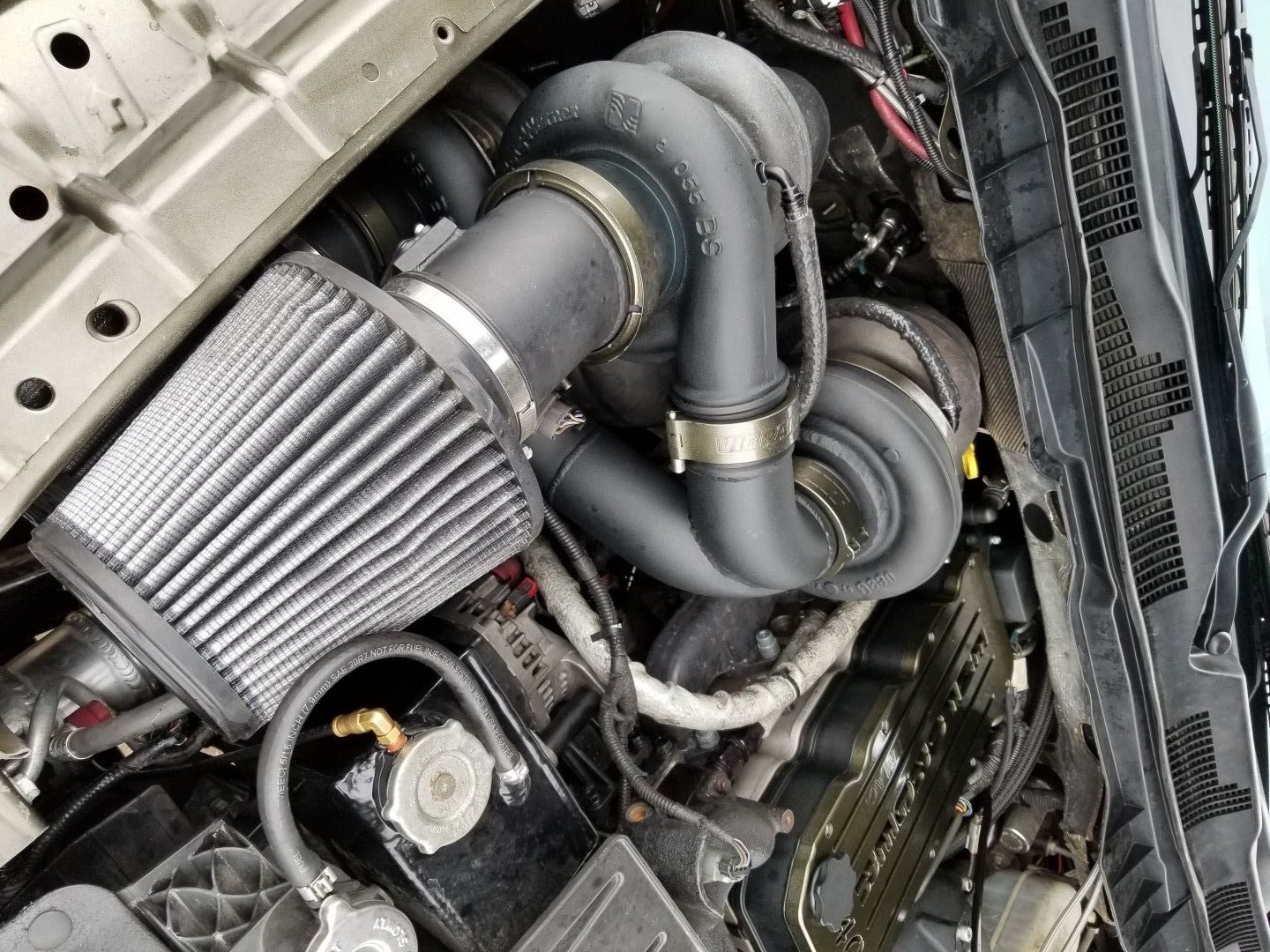When it comes to longevity, Hyundai hasn’t always been the first automaker that comes to mind. But in recent years, the South Korean manufacturer has worked hard to build a reputation for reliability and performance. Today, many Hyundai engines are not only delivering excellent fuel economy and smooth performance but are also lasting well past the 200,000-mile mark—something that was once considered rare for a non-luxury vehicle brand.
Hyundai’s engineering advancements, consistent quality control, and long powertrain warranties (often 10 years or 100,000 miles) have helped elevate the brand’s image. But beyond marketing promises, real-world drivers have started noticing something important—some Hyundai engines are going the distance, and then some. Whether it’s compact cars, crossovers, or full-size SUVs, Hyundai has quietly produced a number of engines that age gracefully with minimal issues when properly maintained.
In this blog, we’ll explore 10 Hyundai engines known for their surprising longevity. These powertrains have earned the trust of mechanics, reviewers, and owners alike, with some vehicles equipped with these engines even pushing past the 300,000-mile threshold. So, if you’re in the market for a long-lasting ride or just curious about what makes a Hyundai tick for years, this list is for you.
10 Hyundai Engines With Surprising Longevity
These 10 Hyundai engines have proven to be surprisingly long-lasting. Whether found in sedans, SUVs, or hatchbacks, these motors consistently outlive expectations with proper maintenance. Owners report smooth performance, minimal repairs, and excellent endurance. If you value dependability, these engines are among the best in Hyundai’s history.
ALSO READ: 10 Kia Models With Shockingly Strong Powertrains
1. 2.0L Nu MPI Engine (Used in Elantra, Tucson)
The 2.0L Nu Multi-Point Injection (MPI) engine, found in models like the Hyundai Elantra and Tucson, is a standout for its simplicity and reliability. Unlike its turbocharged siblings, this naturally aspirated engine avoids complex parts that often wear out prematurely.
It’s tuned for efficiency and consistent performance rather than raw power, making it ideal for daily commuters who prioritize durability over speed.
Owners often report minimal issues even beyond 200,000 miles. Its aluminum construction keeps weight low and helps with heat management, reducing wear and tear on components.
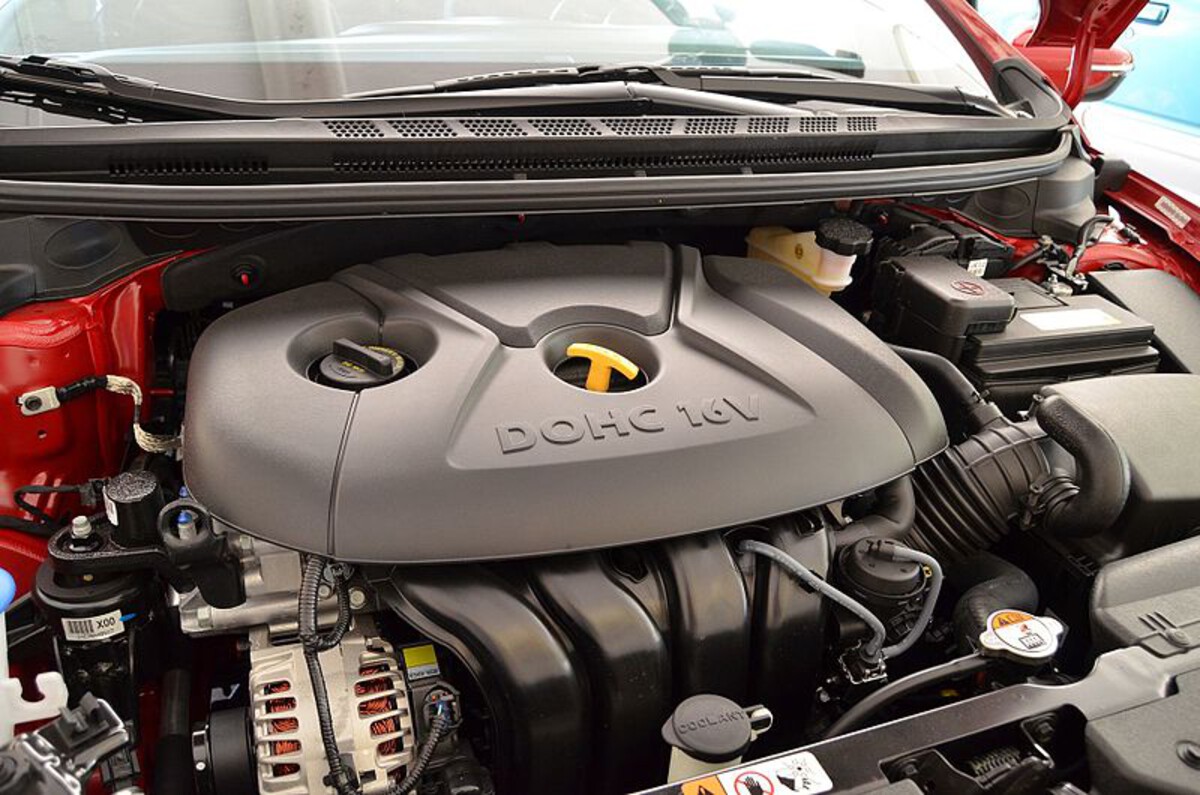
The Nu MPI also benefits from Hyundai’s CVVT (Continuously Variable Valve Timing) system, which improves engine responsiveness while maintaining efficiency over time.
Routine oil changes, air filter replacements, and regular spark plug servicing are usually all it takes to keep this engine in top form. Mechanics frequently recommend it to those seeking a reliable, low-maintenance engine.
It doesn’t surprise us that this engine has become a favorite among fleet owners and long-distance drivers. If you want an engine that just won’t quit, the 2.0L Nu MPI deserves a spot high on your list.
2. 2.4L Theta II GDI Engine
Despite some early concerns, the 2.4L Theta II GDI (Gasoline Direct Injection) engine has matured into a strong performer, particularly in later models of the Sonata and Santa Fe. Hyundai refined this engine after addressing issues in earlier versions, and the newer iterations have proven to be highly durable.
Equipped with direct injection, it offers an excellent balance between fuel economy and power. The improved design includes better piston cooling and reduced carbon build-up, which were problems in older models.
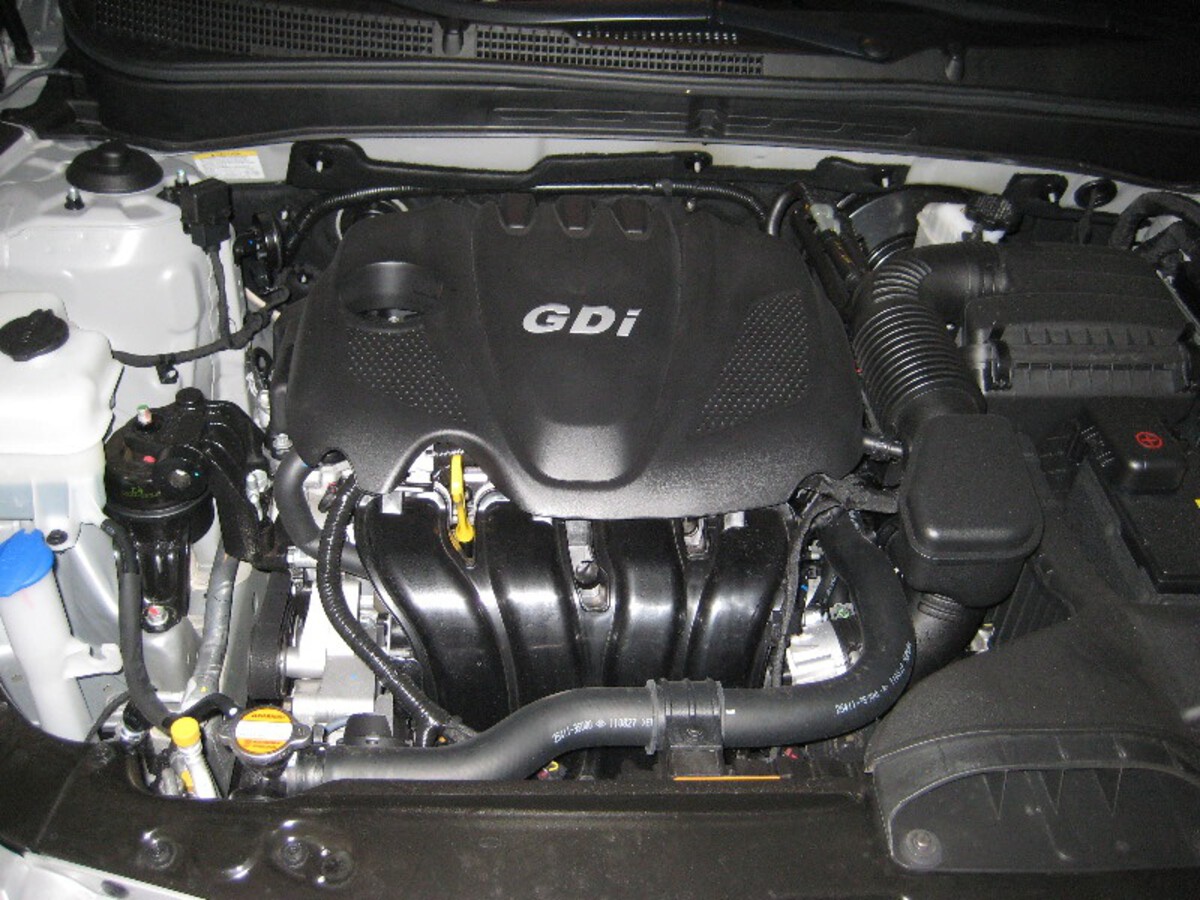
As long as the engine receives timely maintenance—especially regular oil changes using high-quality synthetic oil—this powertrain shows very few signs of wear, even beyond 200,000 miles.
It also helps that Hyundai extended warranty coverage and offered software updates and recalls for early engine problems, demonstrating the company’s commitment to long-term quality.
Today, many owners are comfortably surpassing 250,000 miles without major overhauls. With thoughtful engineering revisions and responsive customer service, Hyundai turned this engine from a cautionary tale into a shining example of resilience.
3. 1.6L Gamma GDI Engine (Used in Accent, Veloster, Kona)
Small but mighty, the 1.6L Gamma GDI engine is a great example of Hyundai engineering punching above its weight. Found in the Accent, Veloster, and even base trims of the Kona, this engine delivers impressive fuel economy while standing the test of time.
With a lightweight aluminum block and GDI technology, it offers responsive acceleration while staying efficient. What really stands out is its low maintenance cost.
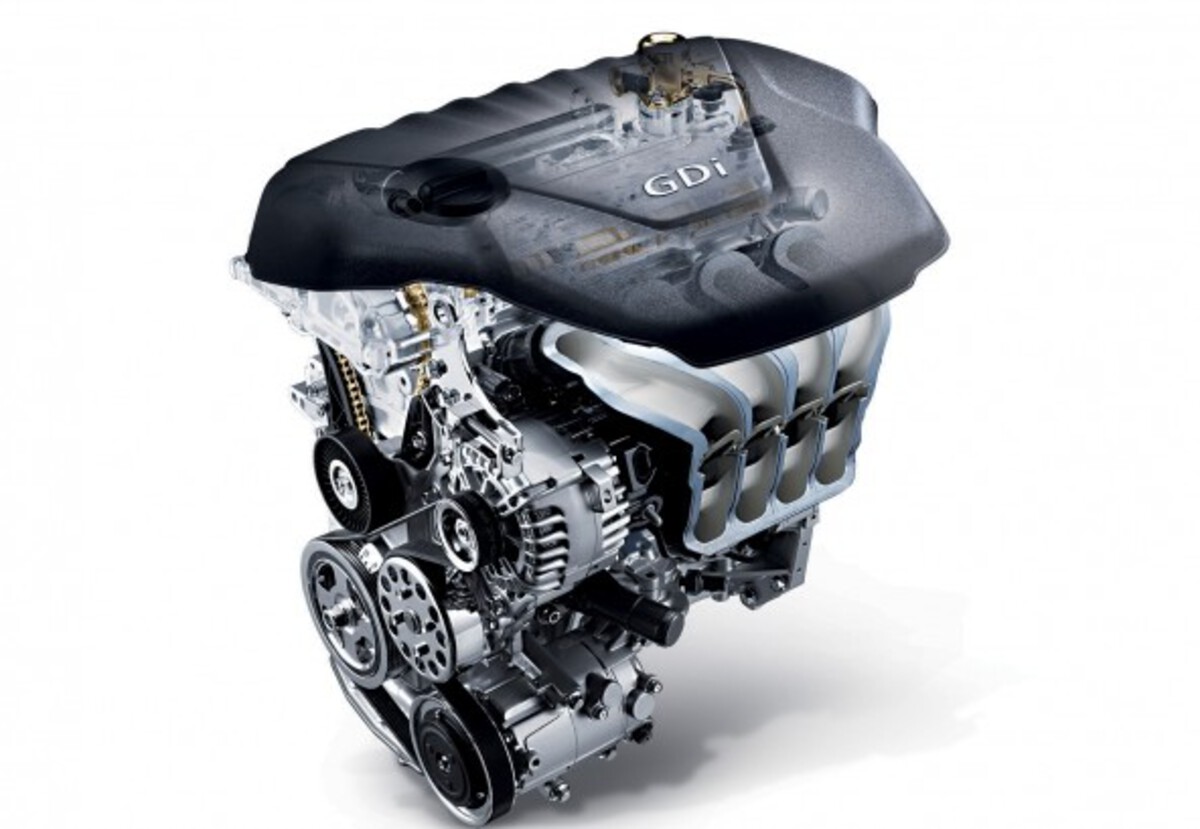
Timing chains replace belts, reducing long-term replacement needs, and the engine architecture allows for easier access during repairs or tune-ups.
While turbocharged variants of the Gamma engine have had mixed longevity results, the naturally aspirated 1.6L Gamma consistently performs well over long periods.
Drivers who stay on top of oil changes and fuel injector cleanings can expect this engine to last well past the 200,000-mile mark. Its compact design and simplicity make it a favorite among budget-conscious buyers who still want long-term value.
4. 3.3L Lambda V6 Engine (Used in Azera, Santa Fe, Cadenza)
The 3.3L Lambda V6 engine has proven itself as a refined and long-lasting workhorse. Found in higher-end Hyundai models like the Azera and Santa Fe, as well as the Kia Cadenza, this powertrain balances luxury-grade smoothness with outstanding durability.
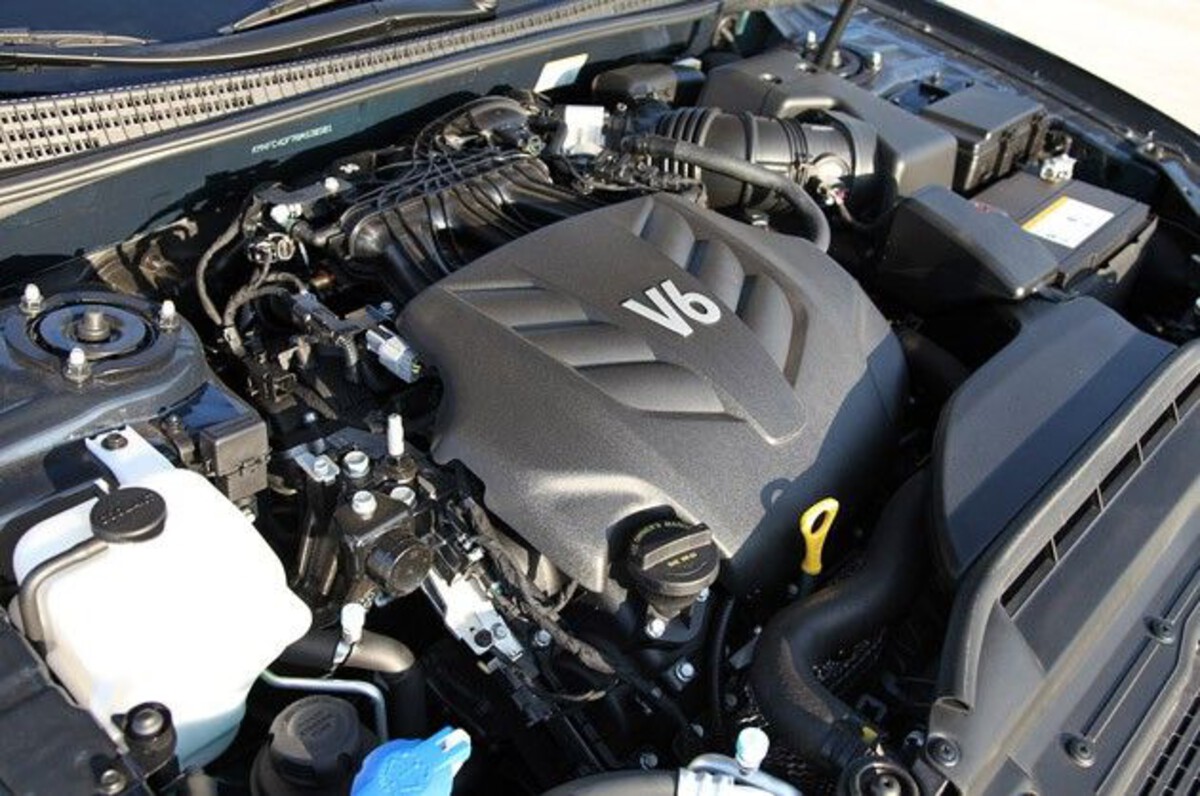
Built on an aluminum block with dual overhead camshafts and continuously variable valve timing, this engine delivers ample power while maintaining impressive fuel economy for its size. It’s often praised for quiet operation, minimal vibration, and consistent performance, even after years of use.
Regular maintenance is key, especially with spark plugs and ignition coils. But overall, the 3.3L Lambda engine rarely suffers from major mechanical failures. It has been known to cross the 250,000-mile barrier when treated well. For those who want V6 performance without sacrificing longevity, this engine is one of Hyundai’s best-kept secrets.
5. 2.0L Turbocharged Theta II Engine (Used in Sonata Turbo, Santa Fe Sport)
You might not expect a turbocharged engine to make this list, but the 2.0L Turbo Theta II has surprised many with its endurance. Hyundai engineered this version of the Theta engine with stronger internal components and advanced cooling systems to manage the increased stress of forced induction.
Found in performance variants like the Sonata Turbo and Santa Fe Sport, this engine offers punchy acceleration while still proving dependable over time.

When properly maintained, including strict adherence to oil change intervals and premium fuel usage, the turbocharged Theta II holds up better than many competitors’ turbo engines.
That said, neglect can shorten its lifespan. Regular maintenance of the turbocharger, use of top-tier oil, and paying attention to PCV valve and intercooler servicing are key.
Enthusiasts and everyday drivers alike have reported engine life well into the 200,000-mile range, making it one of the more impressive longevity stories in Hyundai’s performance lineup.
6. 2.5L Smartstream GDI Engine (Used in Sonata, Tucson, Santa Cruz)
Hyundai’s newer generation Smartstream 2.5L engine has quickly gained a reputation for clean performance and promising durability. It’s part of the brand’s push toward high-efficiency, low-emission engines, but it’s also proving to be quite long-lasting.
This engine uses both port and direct injection to reduce carbon buildup—a common issue in GDI-only engines.

It also features a variable oil pump and optimized thermal management, helping reduce engine strain during high-speed or high-temperature conditions.
Early reports from owners of the Sonata, Tucson, and Santa Cruz equipped with the 2.5L Smartstream are highly favorable, with many reaching the 100,000-mile milestone with zero issues.
If trends continue, this engine could become one of Hyundai’s most durable in the modern era. Its clean design and forward-thinking tech give it a bright future in the world of long-life engines.
ALSO READ: 5 Mazdas Known for Engine Endurance and 5 That Fail Fast
7. 1.8L Nu MPI Engine (Used in Elantra, i30)
Often overshadowed by larger engines, the 1.8L Nu MPI deserves credit for being one of Hyundai’s most reliable small-displacement motors.
Found in previous-generation Elantras and the international i30, this engine has become a favorite in markets where fuel efficiency and longevity are top priorities.
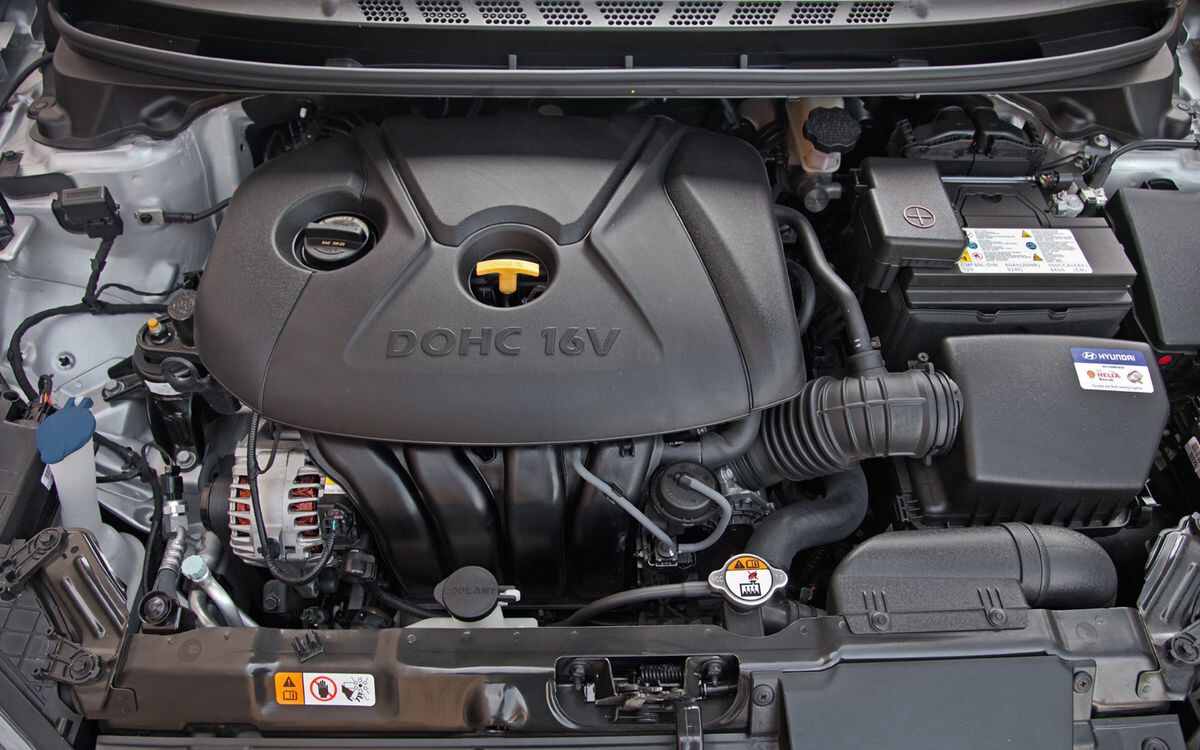
Simple design, fewer moving parts, and no turbocharging mean fewer things that can go wrong.
The engine is also known for smooth idle, minimal oil consumption, and relatively low repair costs. Timing chains instead of belts further boost its reliability.
While it may not deliver thrilling performance, it’s a quiet achiever. Many Elantra owners have pushed these engines past 250,000 miles with little more than routine maintenance.
For drivers who value long-term usability over horsepower, the 1.8L Nu MPI is a hidden gem.
8. 2.7L Mu V6 Engine (Used in Tucson, Sonata, Tiburon)
The 2.7L Mu V6 engine, though no longer in production, has left a legacy of durability. Used in early-2000s Tucsons, Sonatas, and even the sporty Tiburon, this engine balanced performance with simplicity.
Its cast iron block, aluminum heads, and timing belt setup offered old-school engineering with a reliable twist.

While it requires periodic timing belt changes, the rest of the engine’s design is solid and proven. Valve cover gasket leaks and minor oil seepage are common with age, but rarely engine-ending.
Drivers who kept up with routine maintenance have commonly reported over 200,000 miles without any major rebuilds.
In the used car market, older Hyundais with this engine are still going strong, proving the Mu V6 is one of Hyundai’s early success stories in long-term dependability.
9. 2.0L CRDi Diesel Engine (Used in i20, Creta, Tucson – International Markets)
Hyundai’s 2.0L CRDi diesel engine, primarily found in international markets, has gained acclaim for its torque and toughness.
Used in models like the Creta, i20, and Tucson abroad, it features common rail direct injection and a robust turbocharger.
Diesel engines are naturally long-lived due to lower RPM operation and higher compression, and Hyundai’s 2.0L CRDi is no exception.

Owners across Asia and Europe report high mileage (300,000 km or more) with few issues. Solid construction, strong piston rings, and efficient turbo cooling systems all contribute to its extended lifespan.
While maintenance is slightly more intensive—requiring regular fuel filter changes and occasional injector cleaning—the payoff is remarkable endurance. It’s one of Hyundai’s most trusted diesel units to date.
10. 1.2L Kappa MPI Engine (Used in i10, Grand i10, Aura)
Last but not least, the 1.2L Kappa MPI engine, widely used in Hyundai’s compact models in India and other global markets, is a prime example of how small can still mean strong. This compact engine powers millions of city cars and is renowned for its fuel efficiency and minimal maintenance.
Its long-lasting performance can be credited to basic, robust design and Hyundai’s focus on urban-use durability. It’s also remarkably refined for its size, offering good NVH (Noise, Vibration, Harshness) control and smooth acceleration.
Drivers across markets report 150,000–200,000 km usage with basic upkeep.
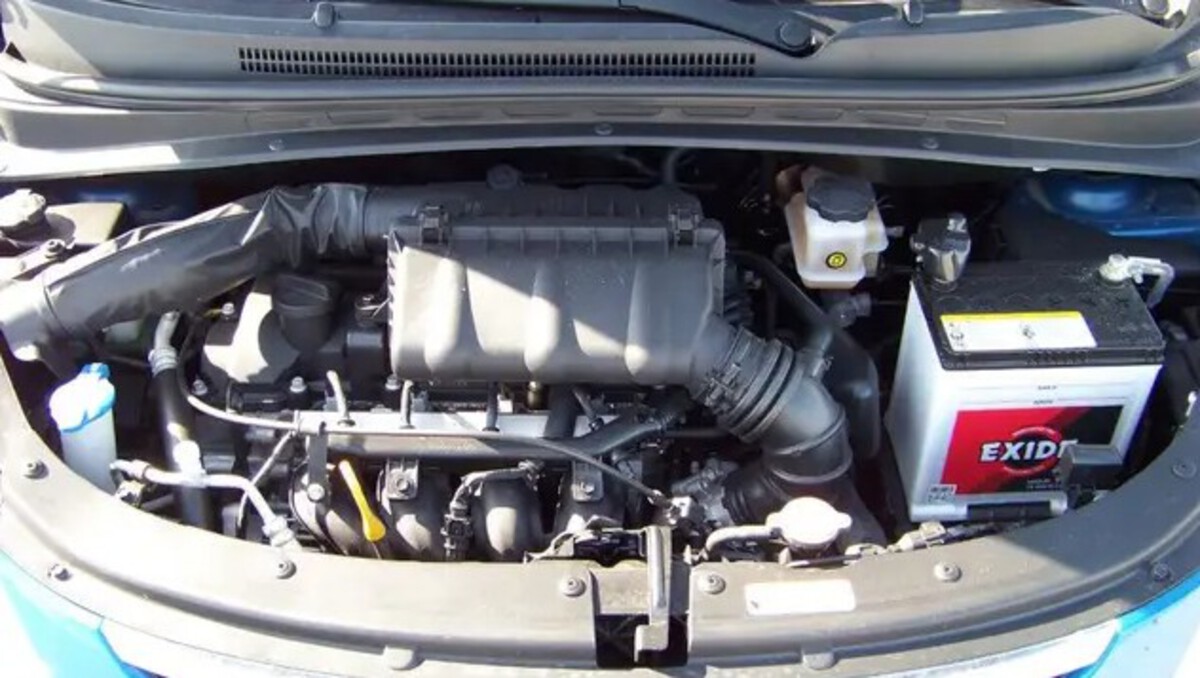
Timing chains, minimal electronics, and solid metallurgy help this engine stand up to years of start-stop traffic and tough climates. It may be small, but the Kappa MPI is one of Hyundai’s most dependable engines yet.
Hyundai has come a long way from its early years of skeptical reliability reviews. With strategic improvements in engine design, metallurgy, and quality assurance, many of the brand’s engines now rival—and in some cases surpass—those of long-trusted Japanese automakers in terms of longevity.
From small-displacement daily drivers like the 1.6L Gamma and 1.2L Kappa to larger, performance-ready engines like the 3.3L Lambda V6 and 2.0L Turbo Theta II, Hyundai has shown that it can deliver lasting value in multiple vehicle categories. Even newer powertrains like the Smartstream series are already showing great promise, thanks to their blend of efficiency, reduced emissions, and extended life expectancy.
The real key lies in Hyundai’s ability to listen to past feedback, refine its engineering processes, and back its products with one of the most generous warranties in the industry. For drivers who maintain their vehicles well, these engines can provide peace of mind for hundreds of thousands of miles.
If you’re shopping for a vehicle that won’t quit on you halfway through its life cycle, Hyundai’s lineup of long-lasting engines proves that dependability and value can indeed go hand in hand.

